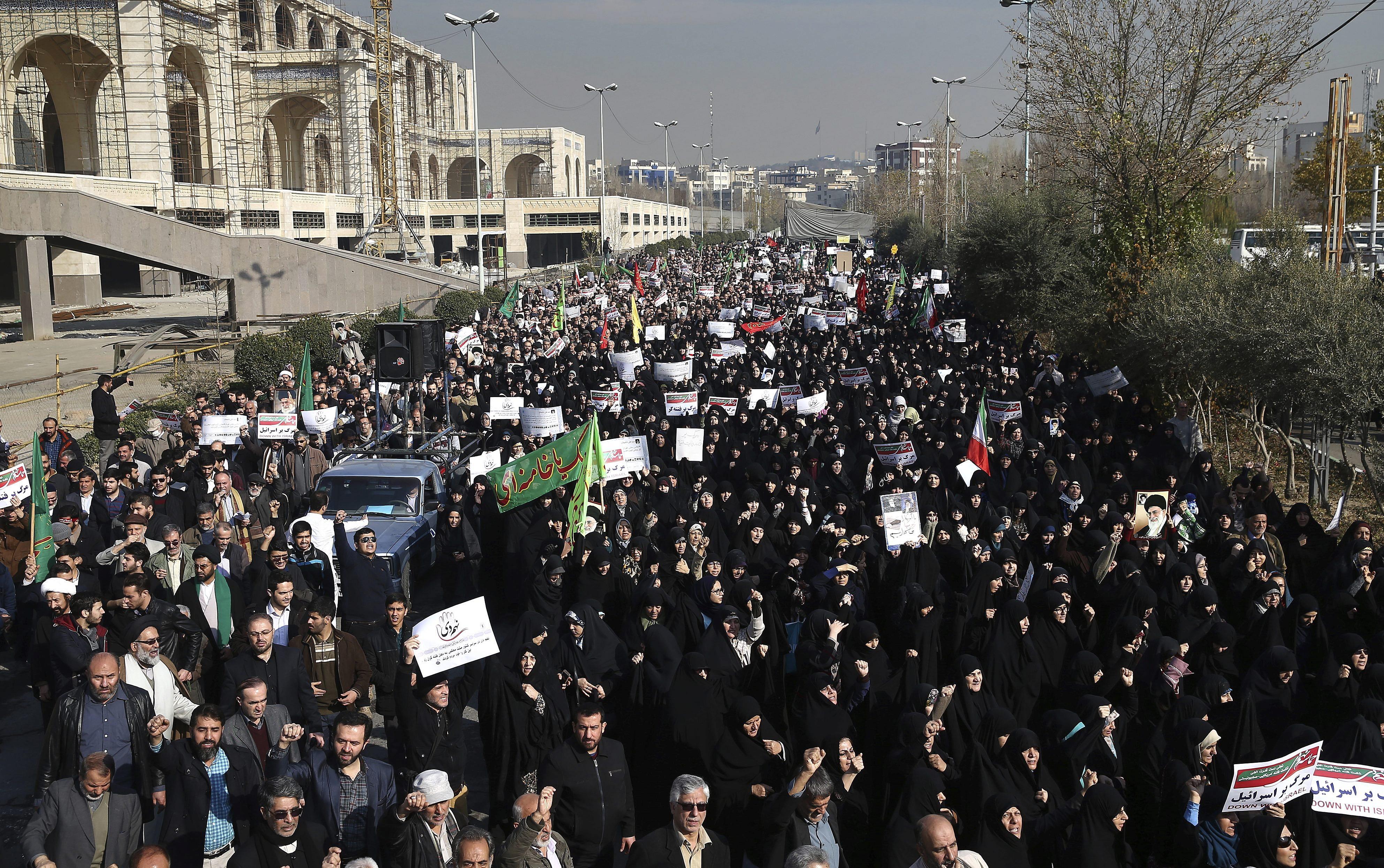UNITED NATIONS, Jan. 5 (Xinhua) -- The unrest in Iran does not constitute a threat to international peace and security, said Francois Delattre, the French ambassador to the United Nations, on Friday.
"However worrying the events of the last few days in Iran may be, they do not constitute, per se, a threat to international peace and security. We must react appropriately to what is going on," Delattre told the Security Council in a debate on the situation in Iran. "In other words, we must ensure that we remain watchful and we give proper vigilance to what is happening ... we must be aware of any attempts to exploit the crisis for personal ends."
"Change in Iran will not come from without, it will come from the Iranian people themselves."
It's up to the Iranians and to the Iranians alone to pursue the path of peaceful dialogue, a dialogue based on full respect for the fundamental rights and freedoms of the Iranian people, he said.
The French envoy stressed the need to uphold an international agreement on Iran's nuclear program. "We must commit fully to upholding the nuclear agreement with Iran ... and to promoting its implementation."
The July 2015 agreement between Iran and six world powers -- Britain, China, France, Germany, Russia and the United States -- is one of the cornerstones of stability of the region of the Middle East as a whole, he said.
To lose this hard-won ground would be a major setback not just for the region, but also for the entire international community, and for the non-proliferation regime, he said. "The consequences and fallout might be very heavy."
He called for "realistic and robust dialogue" with Iran concerning Tehran's ballistic missile activities. He also asked countries to engage in frank and open discussions with Iran "so that with Tehran we can address the concerns pertaining to Iran's influence over the Middle East and its role in regional crises."
Despite sometimes deep divisions, dialogue with Iran is essential, said Delattre.
Swedish deputy permanent representative to the United Nations, Irina Schoulgin Nyoni, also stressed the importance of retaining the Iran nuclear deal and of engaging in dialogue with Iran.
The unrest in Iran must be separated from the nuclear deal, she told the Security Council.
"Sweden and the European Union are very clear on our full support for the agreement. Its continued implementation is of crucial importance. The agreement is ensuring the exclusively peaceful nature of the Iranian nuclear program, which contributes to stability in the region and beyond. It significantly contributes to strengthening the global non-proliferation architecture."
On the unrest in Iran, she said her country has noted Iranian President Hassan Rouhani's reaffirmation of the people's right to protest peacefully. "We expect the Iranian authorities to respond to protests in full compliance with Iran's obligations under international human rights law," she said.
"In this regard, continued and close dialogue with Iran is of outmost importance. Sweden has been in contact with the Iranian authorities on recent developments. In the spirit of frankness and respect, we have made clear that we expect all concerned to refrain from the excessive and disproportionate use of force and to ensure and respect freedom of expression, including on the internet."
She also expressed reservations on Friday's Security Council meeting called by the United States.
"The Security Council has an essential preventive function and we should constantly consider means to follow up on early warnings in the most suitable and constructive manner, no matter what country is affected or which situation is involved. We do, however, have our reservations on the format and timing of this meeting."
Russia said the issue should not have been discussed in the Security Council in the first place.
"Today we are witness once again how the United States is abusing the platform of the Security Council," Russian ambassador Vassily Nebenzia told the council. "It's obvious for everyone that the topic chosen today does not fall within the prerogative established by the UN Charter for the Security Council."
He said the council should not include in its agenda any purely internal political issues.
